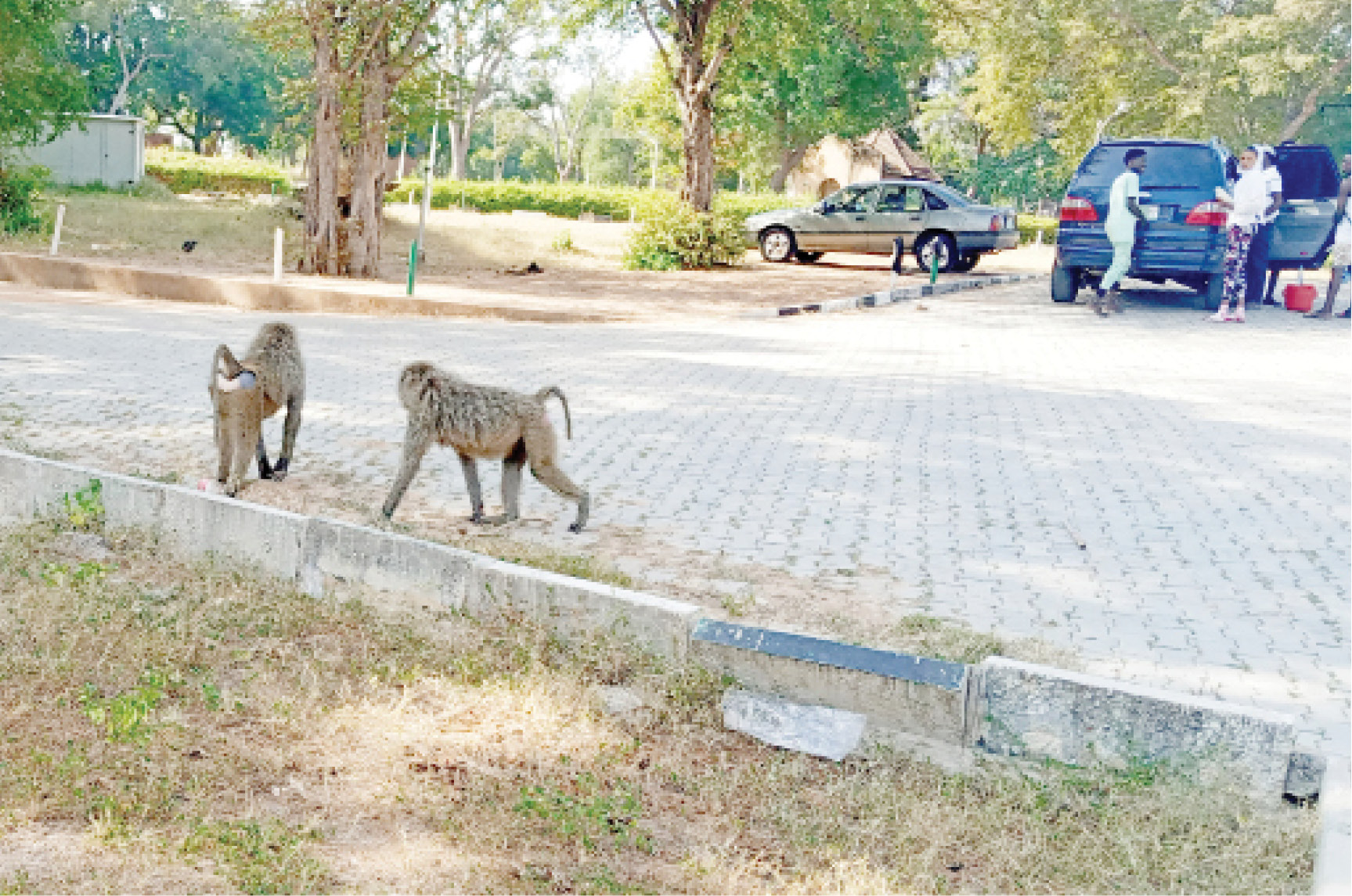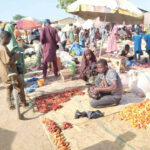The Yankari Game Reserve was one of the best tourist destinations in Africa. It hosted varieties of wild animals in their natural habitat, different kinds of flora and fauna, as well as many natural warm water springs, which attracted researchers, artists, musicians, students, tourists and holidaymakers within Nigeria and from different countries around the world. Daily Trust on Sunday reports that this pride of the North is in a deplorable condition.
It is located in the present day Alkaleri Local Government Area of Bauchi State and covers an area of about 2,244 square kilometers. It was initially established as a game reserve in 1956 but subsequently upgraded to a national park in 1991 and managed by the National Park Service until 2006 when it was handed over to the Bauchi State Government.
- Experts urge community systems strengthening for TB, COVID-19 response
- Army went to Lekki with blank, live ammunitions, General tells panel
Daily Trust on Sunday learnt that many of the animals in the game reserve were forced into extinction due to the activities of poachers and local hunters. This was occasioned by inadequate manpower to manage the facility, especially forest guards and rangers. And it is not properly fenced.

Another factor threatening the reserve is the infiltration of pastoralists, who connive with some rangers to aid poachers. Also, there’s illegal bush burning and encroachment by farmers, which is increasing hostility between elephants and nearby communities, leading to loss of lives and properties, especially farm produce.
Although there is no statistics on animals leaving the game reserve, many species are no longer seen in their locations.
Investigation shows that for many years, the game reserve has been battling with mismanagement and lack of necessary equipment as a result of underfunding and negligence by successive governments. Also, epileptic power supply, which is affecting water supply, is crippling activities in the facility. On a daily basis, the hotel site, museum, recreation and other facilities are getting close to a state of comatose.
The height of the deterioration in the game reserve is lack of functional utility vehicles for patrol and sightseeing. Scraps of vehicles, popularly known as ‘game viewing vehicles,’ mini buses for staff and visitors are seen dumped at the premises of the administrative block, beside the hotel site. And they keep on decaying under the rain and sun, even as they are covered by grasses. The game reserve has only four patrol vehicles.
Because of the bad condition of the facility, many visitors find it difficult to access historic sites and locations.
There are eight game viewing vehicles, but only two are functional. A member of staff told our correspondent that the remaining two vehicles are used in taking visitors round the facility. And when they are many, they go in their vehicles or just visit the museum and water springs and leave.

The situation has opened an opportunity for commercial taxis, who charge between N3,000 to N5,000, depending on the time and areas visitors intend to go from the first gate.
The hotel, recreational and sporting facilities, including the tennis court, squash and badminton areas, are in bad shapes. The once green environment is also not spared as dry trees and flowers now liter the premises.
Although the hotel buildings still look good from a distance, the structures are deteriorating as paintwork has started fading due to many years without renovation.
The hotel has five categories – studio suits, luxury, VIP, Marshall House and the Corporate Villa, designed to accommodate all classes of personalities. Our findings revealed that the management of the Marshal House has been taken over by the Government House to avoid deterioration.
The situation is not different in the area of staff quarters as it is no longer in use due to its dilapidated condition.
Perhaps the most pathetic site is the once famous warm water spring now taken over by aquatic plant, algae and refuse, apparently due to lack of maintenance and the absence of adequate and competent personnel to manage it. When our correspondent visited the site, he did not see any staff or official after spending over one hour, except some young men swimming inside the spring.
The COVID-19 and yellow fever pandemic reportedly contributed to the ugly situation in the game reserve as thousands of visitors, particularly corporate bodies, institutions and agencies are scared. Last April, government had locked down the facility as part of steps to curtail the spread of the virus. Because tourists are scared, patronage is affected and revenue generation is low; hence management of the game reserve is affected.

A senior staff of the game reserve told Daily Trust on Sunday that trouble started when the government handed over the activities of wildlife to a non-governmental organisation, Wildlife Conservative Society (WCS) in 2014. The state government failed to pay the counterpart funding as agreed, which led to poor maintenance of the entire facility, and subsequently, the expulsion of qualified personnel, especially rangers, forest guards, as well as transfer of some managerial staff to other sectors of the concerned ministry.
One of the rangers, who now works on a casual basis in the game reserve, said the CWS insisted on a camping system instead of patrols, adding that lack of equipment and poor remuneration frustrated many qualified rangers out of the job. According to him, majority of the casual workers relied on the mercy of visitors for transportation into the facility.
“You would see two or more workers waiting at the first gate to beg for lift because only two official buses are shuttling from Bauchi to the reserve. Sometimes, a day or two will pass without one coming into the reserve. We cannot afford to pay commercial vehicles from the first gate to the office because taxis take N3,000, and we receive N5,000 as our monthly salary.
“Although the new general manager brought back some members of staff and rangers to continue their jobs on casual basis, the major challenge is the amount being paid. The casual staff and security men receive N5,000 per month. This is one of the reasons many workers, especially forest guards, are not discharging their responsibilities effectively. The situation has also jeopardised the security and wellbeing of both the wildlife and management of the facility. It also paves way for some bad elements within and outside the game reserve to connive with poachers to kill the animals,’’ he said.

The museum also seeks attention as it has suffered neglect over the years. A member of the National Youth Service Corps (NYSC) serving in the museum told our correspondent that due to negligence, even some animal skins on the wall have starting falling off. He added that many tourists, especially students, find it difficult to visit some sites because majority of the game viewing vehicles are not functioning.
“Another challenge in the museum is lack of electricity, which is discouraging visitors. Most times the rooms are dark. Students usually want to take pictures, but the atmosphere is not bright enough; hence they are often frustrated. And the generator is not connected to the museum.
“Also, those who manage the facility hardly visit the museum, let alone address the problems.
“Working in Yankari is difficult. The major challenge facing workers, especially those on lower cadre, is transportation. The two official buses ply the reserve twice or three times in a week. We rely on visitors to go out and come back to our duty posts. We usually sleep at the security post at the gate anytime we don’t get a vehicle going out of the reserve,’’ the corps member said.
A permanent staff in the game reserve who spoke on condition of anonymity told Daily Trust on Sunday that its fortune is silently dying because of the attitude of successive administrations in the state.
“The issue of employing over 60 casual workers is a mirage because if you count the people who report to duty, they are not more than 30. That is why the game reserve is poorly managed. But hope is not lost because the present governor of Bauchi State is from the area. We hope and pray that he would take proactive measures to revive the place, which has helped in transforming the lives of many people in surrounding communities. All the villages around the reserve get electricity because of the facility. Many people have built houses, shops, bought vehicles, motorcycles and enjoyed social amenities due to the presence of reserve,’’ he said.
A casual staff at the hotel site said the problem threatening the facility was maintenance culture and lack of motivation from the authorities concerned, coupled with inadequate staff.

“During the last administration, the Yankari Game Reserve was manned by a sole administrator who employed many casual staff and paid them as at when due. Examples are cleaners in the hotel and warm water springs. Twenty people were assigned to sweep and clean the environment with salaries of between N17,000 and N20,000. After his replacement with the acting general manager, the cleaners were disengaged and other casual staff employed, with N5,000 as salary. And they are expected to perform many responsibilities, including the upkeep of the hotel, sweeping the environment, arranging the halls and bar when there are large number guests, arrangement of recreation facilities, and any other duty that may arise,’’ he also said.
It was learnt that the absence of the former cleaners is now reflecting on the level of sanitation of the hotel and recreation site of the reserve.
“You can go round and see grasses and dirt all over the place. The gardens, which were the beauty of the hotel site, are now in shambles. And officials are not doing anything about it because of poor remuneration.
The management of the reserve, now under the Ministry of Commerce and Tourism, is different. And things have continued to move out of hand because all the casual members of staff get their salaries from the revenue generated in the reserve.
There is also the problem of electricity, coupled with a faulty generator that hardly gives light to the entire hotel. If a visitor comes to stay in the hotel, we power his room with a small generator because the bigger one consumes a lot of fuel,’’ he added.
Our correspondent observed that there were few members of staff when he visited on Thursday, but a casual staff at the hotel said many permanent staff were not reporting to duty due to the COVID-19 pandemic. He added that almost all the work was done by casual staff, and their salaries are not regular, which he said was discouraging.
“Our monthly salary is N5,000; and as I am talking to you, I have not gotten it for the past three months. We are surviving from the little money we get from some generous guests who give us some menial jobs like washing their vehicles, cloths and other things. They give us little money in appreciation, which is keeping us running,’’ he further said.
A former staff of the game reserve and resident of Mainamaaji town, located near the facility, Abdukadir Mohammed, said it was in shambles. “During our time, when the game reserve was under the National Park Service, between 10 and 15 cows were slaughtered every month for lions and other animals. A trailer full of potassium was usually uploaded and distributed to the animals. During that time, it was easier to get census of all the animals because they visited the potassium point, but now, you hardly see three bags of potassium in the reserve.
The recent tracking device put on elephants are making them restive, leading to attacks on individuals and farmland.
Some rangers are conniving with herders by giving them tips on locations of the patrol team; hence they graze inside the reserve unhindered. Also, the ‘Bonfire’ celebration, which was done annually to strengthen community relations to tackle poaching, is no longer there.
Elephants are destroying farmlands in communities outside the territory of the reserve and even killing residents. And we would not do anything about it because you cannot fight the government. If you killed the animal they would jail you. Many residents are living in fear because their farm produce are not safe,” he said.
Daily Trust on Sunday recalls that last year, the Bauchi State Government hinted that it might transfer the ownership of the Yankari Game Reserve back to the Federal Government for proper management.
Governor Bala Mohammed, who dropped the hint during the celebration of his 100 days in office, said he was equally planning to revive the facility to boost revenue generation in the state. He regretted that the park had suffered setbacks over the years, leading to the death of many elephants and extinction of other animals.
“My government will reach out to international bodies to revitalise Yankari. We must review the management of the place, protect the species and certify environmentalists and the plants that are there,” the governor had said.

Responding to the deplorable state of the game reserve, its General Manager, Alhaji Mohammed Ladan, said allegations of deterioration and mismanagement were false, adding that they were fabricated to smear the image of the state government.
“We have the capacity to manage the reserve. We have patrol vehicles and all the working equipment. And rangers are on ground.
“Apart from that, we have employed 64 casual workers. Why should an outsider sit down somewhere and say the Bauchi State Government failed to manage Yankari?”
On the issue of death of animals, Ladan said, “We don’t have that information about the death of animals because some people are misrepresenting Sumo Park with Yankari. Our animals are there in the reserve. They move out and come back because it is against the rules of management to demarcate the reserve, as doing that would restrict their movement. If you fence the place they will no longer be in their natural habitat, which is not acceptable. It is only in a small park like Sumo that animals are fenced.
“How can you fence the Yankari Game Reserve, which covers 2,240 square kilometers? In every national park or game reserve around the world, you don’t have such right. The International Union for Conservation Law states that nobody has the right to restrict the movement of wildlife. These animals have migratory routes, from Maiduguri to Yankari. Others migrated from Plateau State to the Yankari Game Reserve. There are also pockets of forests that determine their movement as they go out and come back. It is nature that takes its course. Many people don’t know the movement of animals and they go about spreading lies.
“Simply because some people see wildlife in their farms and they don’t know when they returned to the reserve, they go ahead to say the animals left the reserve. But they are responsible because they encroached on the animals’ territory, cutting down trees for farming activities. When the animals see their area turning into an open space, it paves way for them to destroy farmlands,’’ he said.
On the challenges of the game reserve, Ladan said, “Our major challenge is the rate of poaching activities. It is very intensive, to the extent that some communities around the reserve, hunters and syndicates of poachers from far distances are now milking the reserve in the lucrative bush meat market. The bush meat market flourishes due to the global economic crisis occasion by the COVID-19 pandemic and other socio-economic problems.
“Recently, we arrested some poachers all the way from Katsina State. We have also arrested many poachers from far distance. It is unlike before when we had only few local hunters within the reserve.
“As a result of the situation, we have reactivated our outstations, and our rangers are on high alert, patrolling the reserve on a daily basis. They are also evolving strategies on camping patrol, frequently patrolling volatile and vulnerable areas to effectively strengthen the security of the reserve.
“We also go into Yankari educational projects, supporting communities on education and other social services to enhance mutual understanding. We are also holding meetings with traditional rulers, youths, students and other stakeholders, where we open up our problems, and they also disclose their challenges and work out modalities to maintain existing cordial relationship,’’ he said.
On the issue of grazing in the reserve, Ladan said, “It is true that Fulani herders are grazing in the reserve because it is not fenced. We are trying to minimise the incident of grazing.
“We also arrested and took some of the herders to court. We are working out modalities to tackle the issues of grazing and poaching. We have concluded plans with the State Ministry of Small and Medium Enterprises (SME) to establish a skills acquisition centre to train communities, with a view to providing alternative means of livelihood to the people, especially youths, so as to stop the hunting and poaching of the animals.
“I want to emphasise that we have the capacity to do the needful. All these false information and exaggeration from the opposition are because the system has changed. They are envious of the developmental strides of this administration and are just trying to dent its image. They don’t know anything about what happens in Yankari.
“I know that things are going well in Yankari. If they have any evidence or firsthand information, they can bring it out. We can’t depend on their fabricated lies.’’

 Join Daily Trust WhatsApp Community For Quick Access To News and Happenings Around You.
Join Daily Trust WhatsApp Community For Quick Access To News and Happenings Around You.


